Society 5.0 – about the strategic problems of Poland through the eyes of Poles and our readiness to solve them using technology
During the second edition of the Digital Festival, the Digital Poland Foundation published the second edition of the survey entitled: “Technology in service of the society. Will Poles become a society 5.0?” (pdf in Polish). The survey was conducted by telephone in July 2020 on a representative group of Poles.
The report presents the result of a reliable survey of Poles, together with experts’ comments on society 5.0. It is a society where technology serves to solve strategic problems of the country. The concept was coined by the Japanese, but in Poland it is still little known, in contrast to the business concept of industry 4.0.
Why is society 5.0 so important?
I think that many of us have found out that technology alone will not solve our problems in the country. The society has to be aware of the challenges (step 1), but also be ready to use technological solutions (step 2). This can be seen in the example of nuclear power, covid-19 vaccines or 5G technology – around which technologies a lot of false information has appeared in the social media, which made the society fear them. As a result, these technologies may not be implemented as much as we would like to, which will not allow us to solve the problem. For example, the answer to the lack of drivers may be an autonomous regional buses Polish PKS), trains (Polish PKP) or trams. However, the society must be ready to use them.
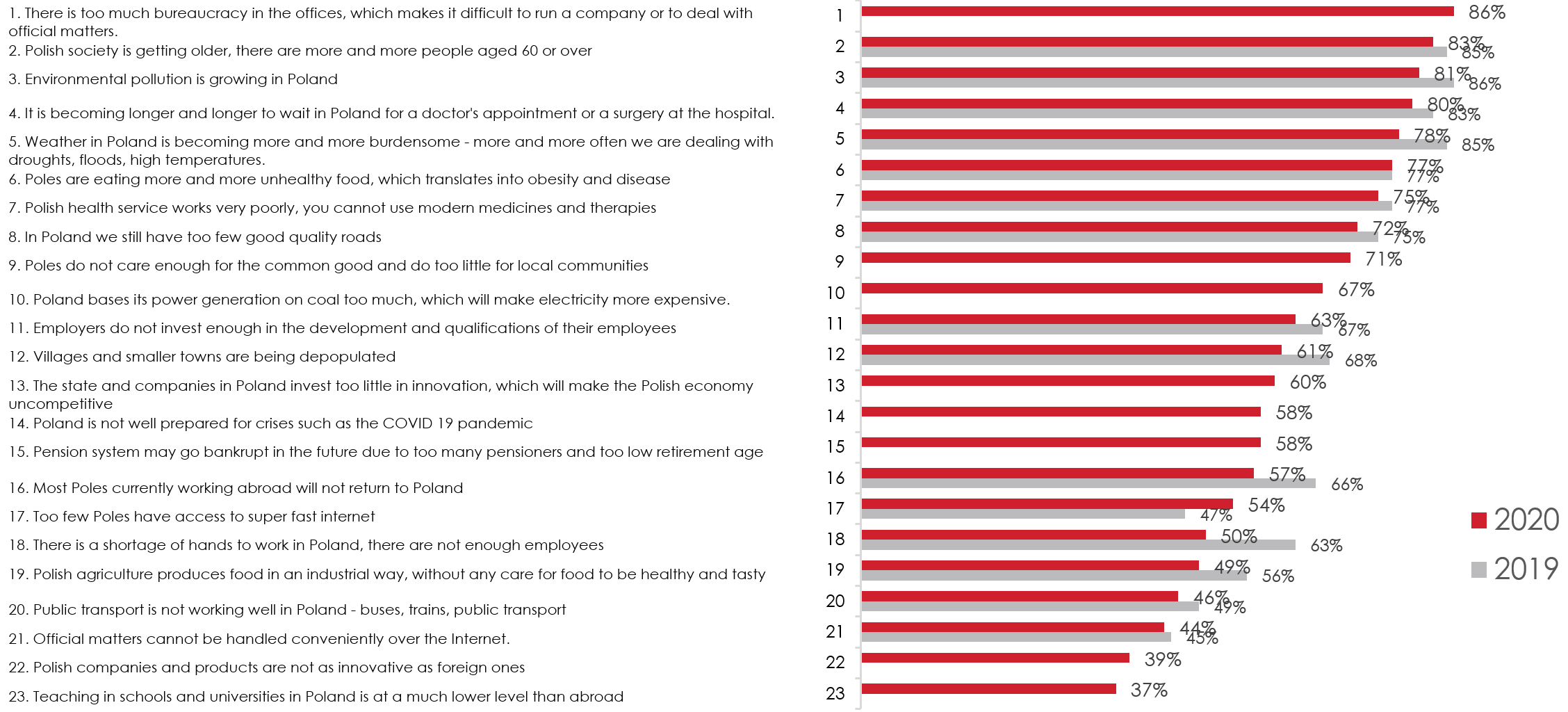
Figure 1. Strategic problems of Poland through the eyes of Poles.
Among the 23 challenges faced by Poland, the Poles are the most demanding (86% of respondents). The second most important Polish problem is the aging society (83%). In fact, the number of people over 60 years old is growing at a record high, as well as the highest number of deaths and a very large drop in births. All in all, these are the worst figures since World War II! In third place, there are a number of problems related to health care (e.g. 80% claim to be waiting in Poland for a doctor’s appointment or a hospital treatment for longer) as well as environmental pollution issues.
The news in 2020, compared to 2019, clearly shows that Poles understand better and better the importance of access to the Internet. The importance of this problem has increased in the eyes of Poles to 54% from 47%. It is also interesting that the significance of the problem of lack of hands to work has decreased (from 63% to 50%), which can be attributed to the economic crisis caused by COVID-19 and the large influx of immigrants to Poland from the East.
It is also worth noting that nearly 60% of Poles believe that Poland is not well prepared for such crises as the covid-19 pandemic. Almost as many Poles believe that the pension system will go bankrupt, which makes it possible to understand why the willingness to lower taxes and invest in hard assets for retirement such as land or real estate in Poland is successful.
Poles have a positive attitude towards technologies
As many as 97% of Poles believe that new technologies are needed, and 94% believe that they are needed for the dynamic development of the Polish economy. Digitalisation facilitates everyday life (87%). More than half of Poles are willing to use new technologies (66%), which shows that we are a good testing ground for new products and services, as was the case with contactless payments (NFC). Nearly 70% also see a chance to bury the differences between cities and villages, using new technologies such as remote working tools or eCommerce.
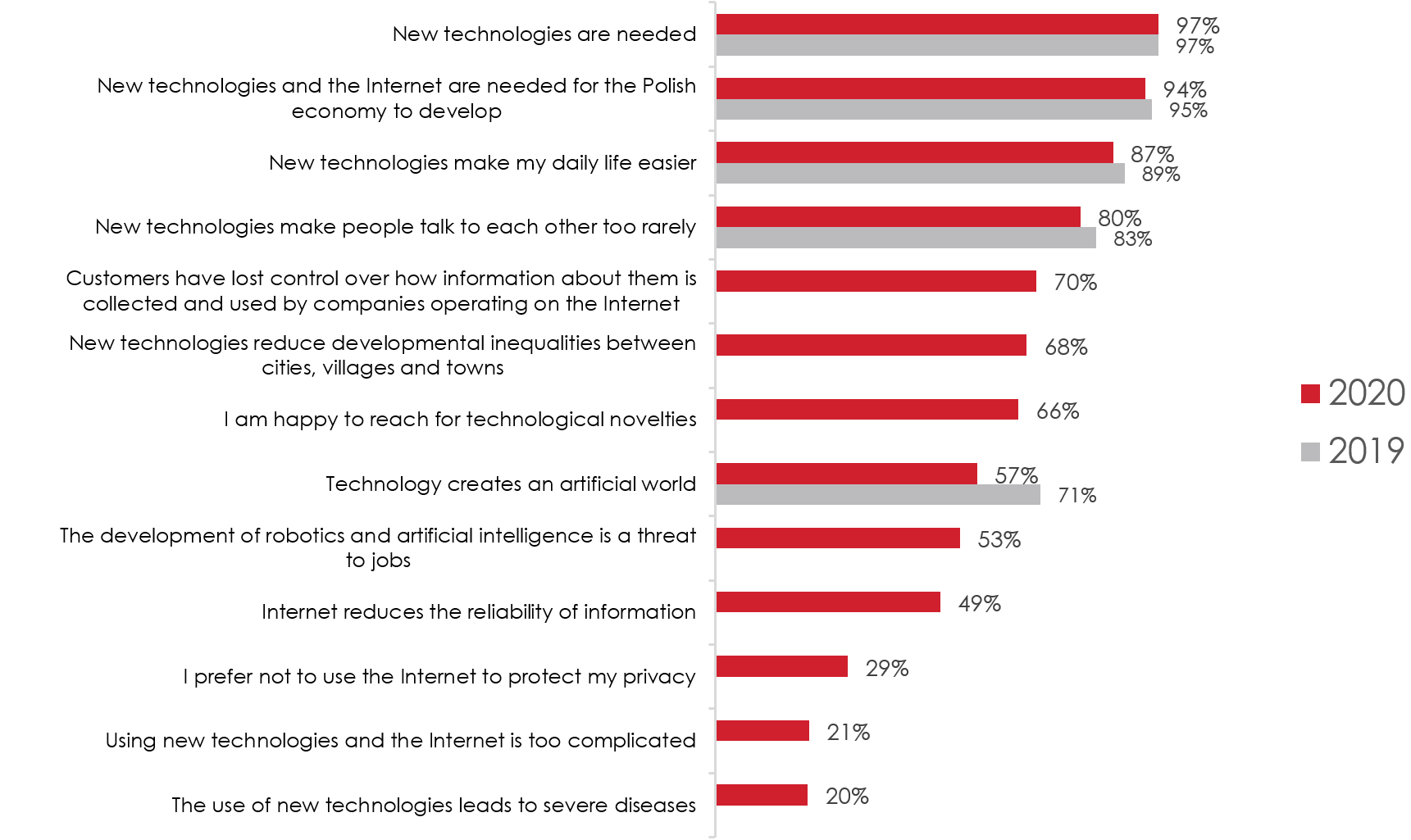
Figure 2. The attitude of Poles towards technology
Poles aware of the risks, but embrace new technologies
The biggest disadvantage of digitisation is that we suck into the digital world and don’t talk to each other enough (80%). As many as 70% claim to have lost control over the private data, which shows that the implementation of GDPR was not effective. The claim that technology creates an artificial world (down from 71% to 57%) is welcome, which shows that digitisation during lockdown and pandemic allowed us to communicate better. Nearly half claim that artificial intelligence and robotization are a threat to jobs, and the Internet, through social media, reduces the credibility of information. Interestingly, 20% believe that new technologies lead to severe diseases – this seems to be a good basis for conspiracy theories, e.g. on the alleged bad impact of cellular networks (EMF impact) on our health or vaccines.
Interestingly, 1/3 of respondents said that they prefer not to use the Internet to look after their privacy, and 21% think that technologies are still too complicated. The latter shows the necessity to carry out educational actions such as the Digital Festival.
Remote learning is undesirable, it is like nuclear power
Poles have a positive attitude towards many technologies, especially those that make our lives easier, such as shopping on the Internet, any navigation tools or faster ways of analyzing diseases. As a nation we are a fan of green energy (87% are positive about wind power plants or photovoltaic panels) and a very moderate supporter of nuclear energy (40%). Interestingly, remote learning has also been met with the same low positive attitude due to the traumatic experiences of many learners or parents of children during the lockdown. Poles have a similarly positive opinion of 5G and social media (65-67%). We are also moderate fans of automation.
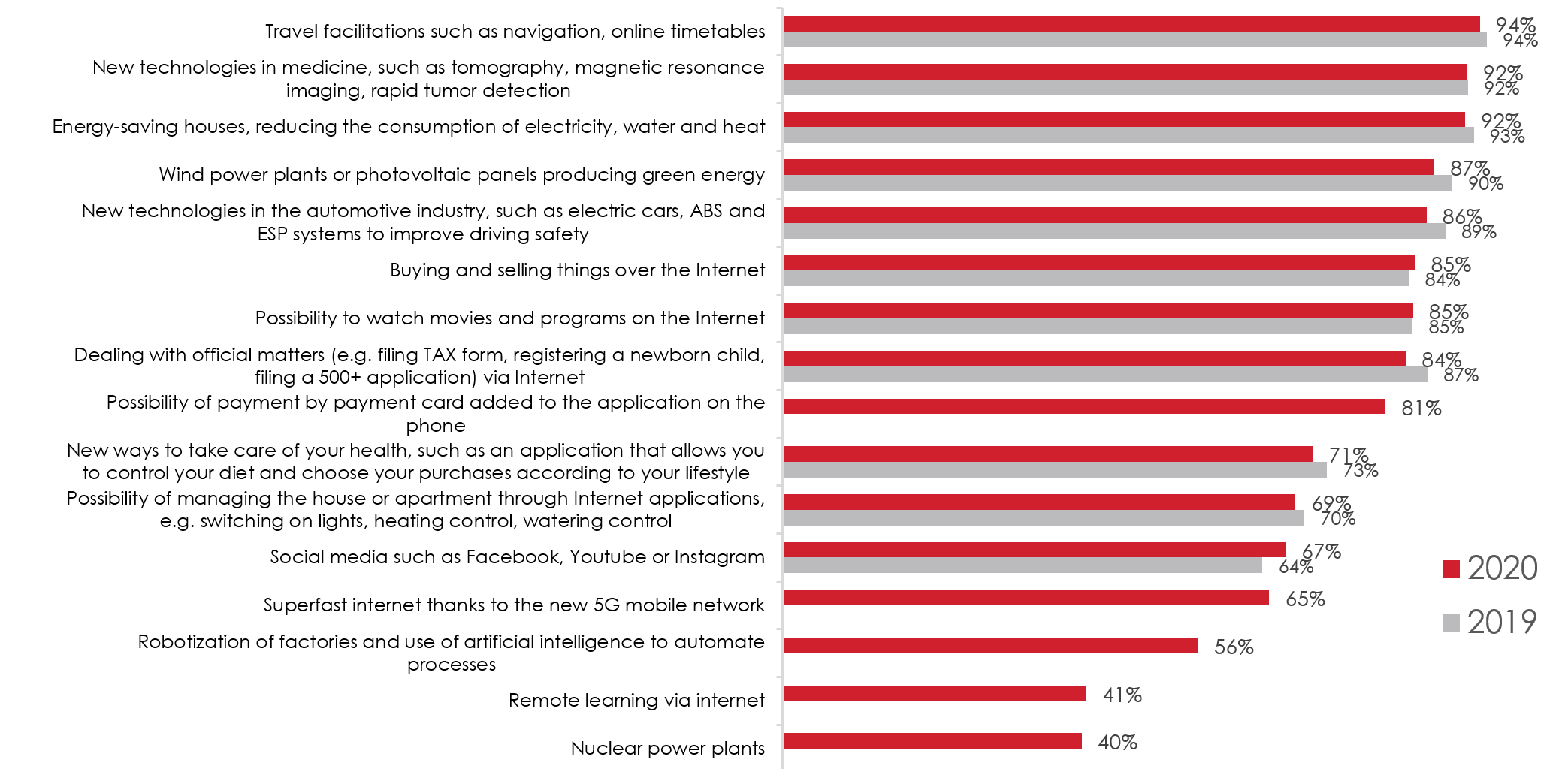
Figure 3. Positive attitude of Poles towards selected technologies.
Mobile payments are coming!
If you look at the technologies and tools already in use, at least occasionally, the most popular is navigation or shopping via the Internet (nearly 80%). The same is true for watching movies, talking over the Internet or social media (75%). Interestingly, 50% of Poles say that they already pay on the phone with a payment card added to the application. Nearly 37% worked and learned remotely, but also used telemedicine. Only 10% have ever used electric or hybrid cars.
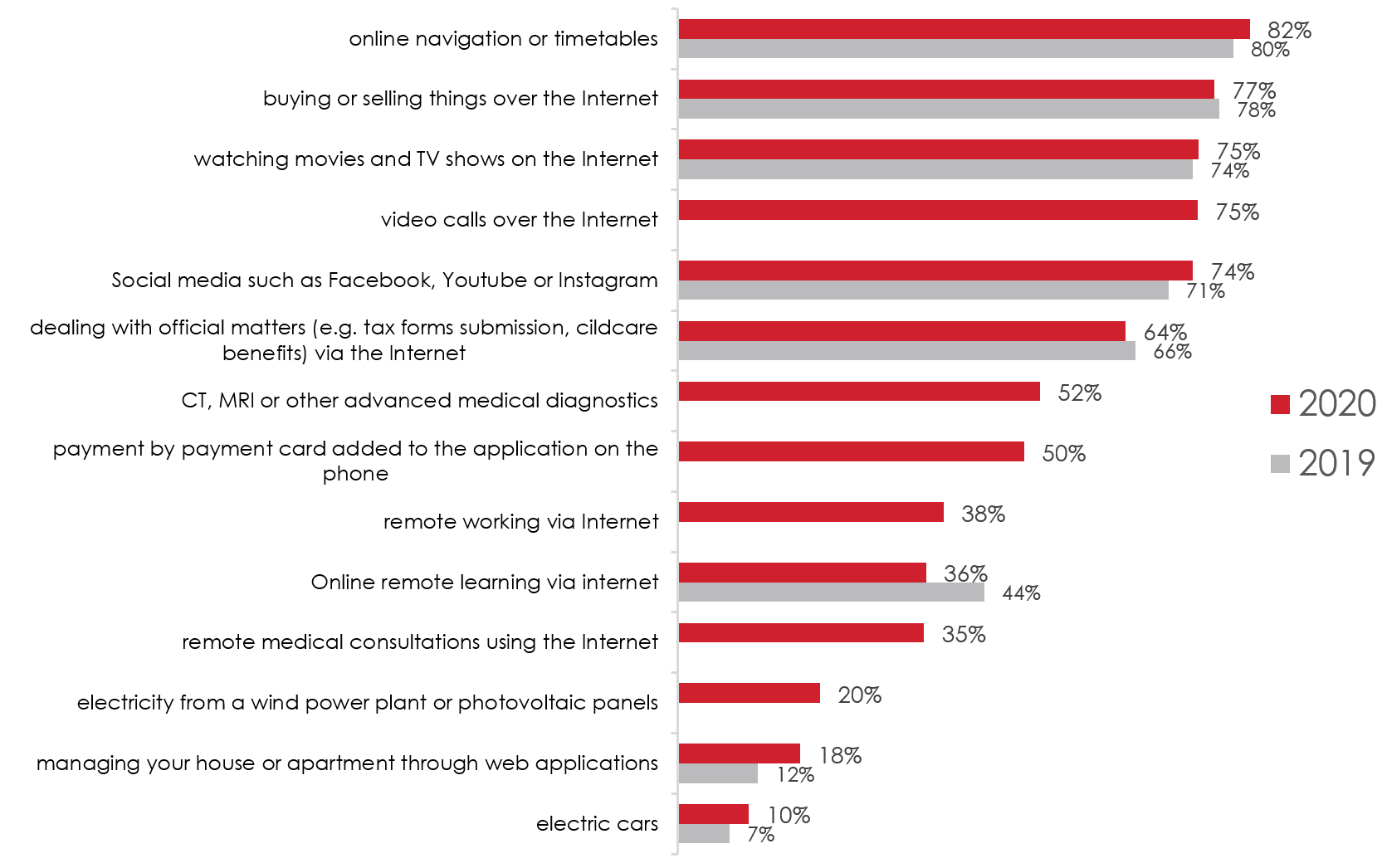
Figure 4. Tech used by Poles
We are less and less ready to vote or learn via the Internet. Half wants to pay thanks to verification of the face or finger section.
Interesting conclusions can also be drawn from the analysis of the declared readiness of Poles to use new technologies. In the face of 2019, the readiness to take advantage of Internet voting or remote learning has decreased significantly. The first service is a victim of the presidential campaign, during which the government side did not express itself positively and voted on the Internet or voting remotly. Likewise, the victim is remote learning, due to the violent entry of science into schools, which resulted in a gigantic chaos. In turn, 65% of us are ready to take advantage of the COVID-19 dentition, which is not optimistic about the inability to build effective protection against coronavirus.
It is worth noting that robots caring for the elderly, autonomous vehicles or medical operations performed by the robot are supported by over 30%. This is quite a lot considering that most of these things do not exist yet. In turn, almost half is ready to pay with the help of a fingertip or face verification, which shows that modern forms of payment have a chance to develop in Poland.
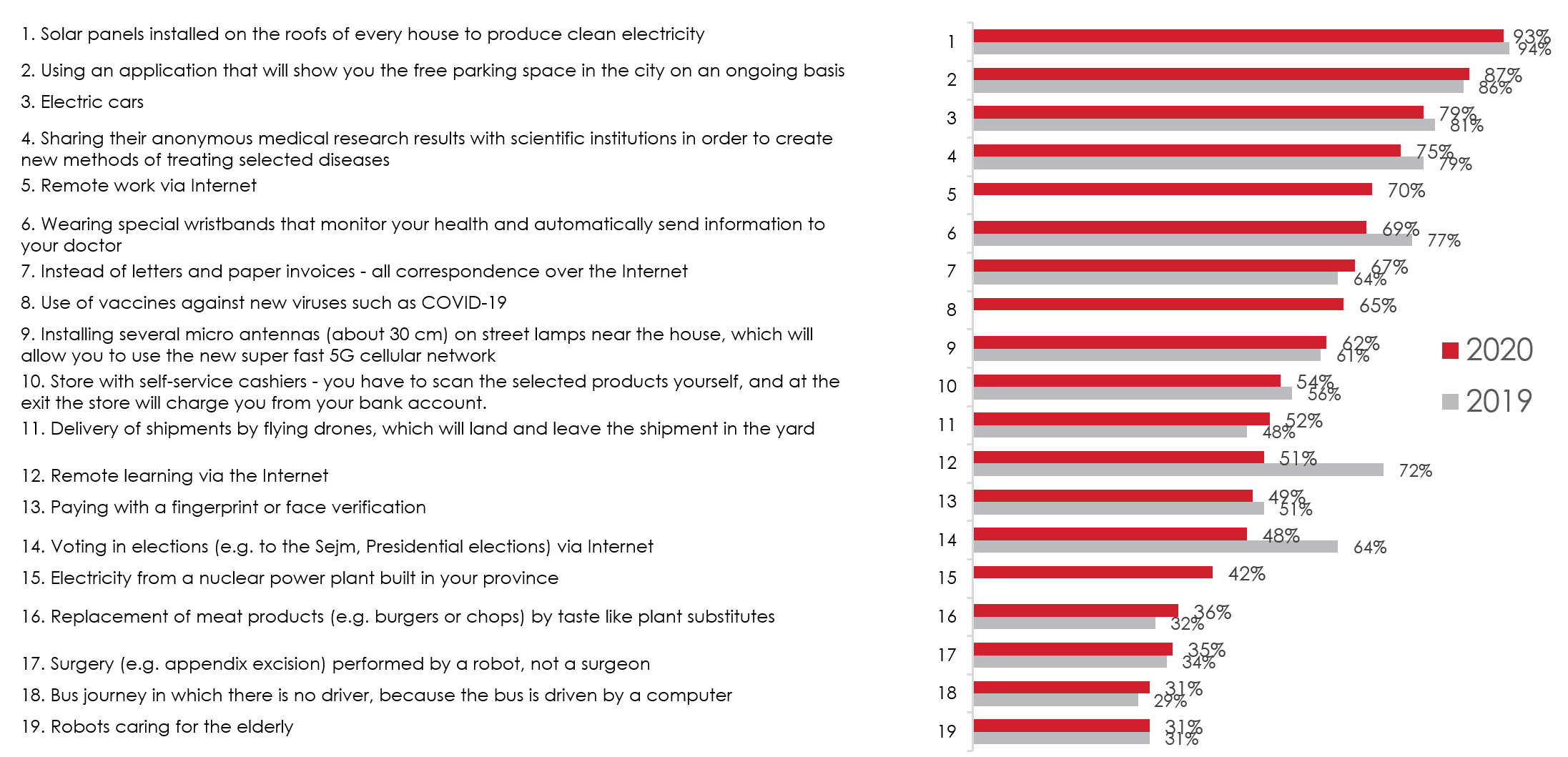
Figure 5. The willingness of Poles to use new technologies.
I hope you find this research interesting! I would like to thank Polpharma, thanks to which we were able to conduct the survey. I also thank all the experts who supported us in our analyses and wrote a short commentary which we included in the report in its Polish version.
Comments
Comments are disabled for this post